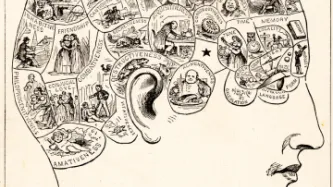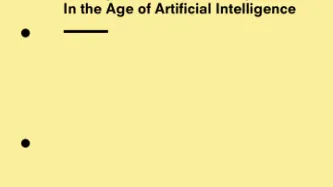Search
Content type: News & Analysis
What if we told you that every photo of you, your family, and your friends posted on your social media or even your blog could be copied and saved indefinitely in a database with billions of images of other people, by a company you've never heard of? And what if we told you that this mass surveillance database was pitched to law enforcement and private companies across the world?
This is more or less the business model and aspiration of Clearview AI, a company that only received worldwide…
Content type: News & Analysis
Last month, the World Health Organization published its guidance on Ethics and Governance of Artificial Intelligence for Health. Privacy International was one of the organisations that was tasked with reviewing the report. We want to start by acknowledging that this report is a very thorough one that does not shy away from acknowledging the risks and limitations of the use of AI in healthcare. As it is often the case with guidance notes of this kind, its effectiveness will depend on the…
Content type: News & Analysis
Profiling and Automated Decision Making: Is Artificial Intelligence Violating Your Right to Privacy?
Image source creative commons.
The below piece was originally posted on the UNRISD site here.
How AI is affecting our human rights
Artificial Intelligence (AI) is part of our daily lives. Its many applications inform almost all sectors of society: from the way we interact on social media, to the way traffic flows are managed in cities; from access to credit and to social services, to the functioning of our ever expanding number of devices connected to the internet.
AI is affecting our human…
Content type: News & Analysis
This piece originally appeared here.
Creative Commons Photo Credit: Source
Tech competition is being used to push a dangerous corporate agenda.
High-tech industries have become the new battlefield as the United States and China clash over tariffs and trade deficits. It’s a new truism that the two countries are locked in a race for dominance in artificial intelligence and that data could drive the outcome.
In this purported race for technological high ground, the argument often goes, China…
Content type: Report
Artificial Intelligence (AI) is part of our daily lives. This technology shapes how people access information, interact with devices, share personal information, and even understand foreign languages. It also transforms how individuals and groups can be tracked and identified, and dramatically alters what kinds of information can be gleaned about people from their data.
AI has the potential to revolutionise societies in positive ways. However, as with any scientific or technological…
Content type: Examples
Computer programs that perform risk assessments of crime suspects are increasingly common in American courtrooms, and are used at every stage of the criminal justice systems to determine who may be set free or granted parole, and the size of the bond they must pay. By 2016, the results of these assessments were given to judges during criminal sentencing and a sentencing reform bill was proposed in Congress to mandate the use of such assessments in federal prisons. In a study of the risk scores…
Content type: Examples
In 2012, London Royal Free, Barnet, and Chase Farm hospitals agreed to provide Google's DeepMind subsidiary with access to an estimated 1.6 million NHS patient records, including full names and medical histories. The company claimed the information, which would remain encrypted so that employees could not identify individual patients, would be used to develop a system for flagging patients at risk of acute kidney injuries, a major reason why people need emergency care. Privacy campaigners…
Content type: Press release
Full report is available here
ARTICLE 19 and Privacy International’s report provides an overview of the impact of AI technologies on freedom of expression and privacy. It calls for further study and monitoring of how AI tools impact human rights.
Specifically, we call on states and companies to:
Ensure protection of international human rights standards. All AI tools must be subject to laws, regulations, and ethical codes which meet the threshold set by international standards.…






